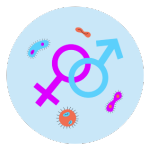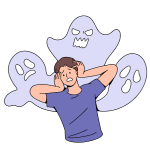Treatment of varicocele
Medically Reviewed by Dr Sravya, MBBS, MS
Introduction
A varicocele is a blowup of the modes within the loose bag of skin that holds the testicles(scrotum). These modes transport oxygen-depleted blood from the testicles. Varicoceles are enlarged pampiniform supersystem modes in the scrotum, forming during puberty.

They are more common on the left side of the scrotum and can grow larger over time. About 15 boys out of 100 have a varicocele, which usually doesn’t cause problems or discomfort. Less frequently, varicoceles can cause pain, growth issues, or shrinking testicles. Varicocele is a common complaint involving enlarged scrotum modes, similar to swollen legs. It can cause testicular pain and infertility in some individuals. However, if unaffected, treatment of varicoceles may not be necessary.#symptoms
Can varicoceles affect fertility?
Yes, varicoceles can affect fertility in some people. Varicoceles can contribute to about 40 of all cases of manly gravidity. Still, numerous people with varicoceles have no problems achieving gestation. Medical experts do not understand what part varicoceles play in gravidity. The temperature inside your scrotum may increase due to the buildup of blood in the modes. The advanced temperature affecting both testicles may affect sperm count or product. Talk to a healthcare provider if you suspect you have gravidity. Fertility enterprises are the top reason why people admit to treatment of varicocele.
Classification of Varicoceles
The association between infertility, ipsilateral testicular atrophy, and varicoceles is based on clinically palpable disease. Varicoceles are evaluated on three severity levels: Grade 1, Grade 2, and Grade 3. Imaging plays a significant role in the diagnosis of varicoceles, as clinical scoring is subjective and depends on sinologist expertise.
Physical Examination
- Physical examination is the preferred method for diagnosing varicocele, with a 70% sensitivity and specificity compared to other diagnostic tools.
- Impalpable or subclinical type or grade 0 is not palpable or visible at rest or during the Valsalva maneuver but can be demonstrated through scrotal ultrasound and colour Doppler examination.
-
Palpable varicocele is clinically palpable at rest or with the Valsalva maneuver, and is further divided into:
Grade 1: Palpable only during the Valsalva maneuver
Grade 2: Palpable at rest yet invisible
Grade 3: Visible and palpable at rest - A grade III varicocele is easily recognizable, but it is not a lower grade. Varicocele can be difficult to detect, especially in certain clinical situations. Past scrotal surgery, cryptorchidism, obesity, edema, etc.
Colour Doppler Ultrasonography(CDU)
- Color Doppler Ultrasonography is a non-invasive diagnostic tool for low-grade varicocele, scrotal surgery, obesity, hydrocele, or tenderness. It uses high-frequency linear probes and blood flow evaluation devices. CDU has a sensitivity of 50% and a specificity of 90%. Varicocele can be divided into five grades based on reflux characteristics, length, and changes during Valsalva's maneuver.
Spermatic Venography
- Spermatic venography is a diagnostic technique used for varicoceles, often used alongside therapeutic occlusion or research. It involves placing a catheter into the right femoral vein, administering contrast material, and obtaining radiographs. Venography is sensitive for detecting blood reflux to the pampiniform plexus, but its significance in clinical varicoceles is unclear due to technical factors.
Thermography
- Thermography is a diagnostic method used to measure temperature differences across the skin surface, including varicocele. It was first used in 1957 and is particularly useful for diagnosing low-grade varicoceles. The technique is less expensive and easier to standardize, but further studies are needed to verify its sensitivity and specificity compared to other methods.
Diagnostic accuracy of methods to detect venous reflux to the pampiniform plexus (Varicoceles).
Sensitivity (%) | Specificity (%) | Accuracy (%) | |
|---|---|---|---|
Physical Exam
| 70 | 70 | 67 |
Colour Doppler
ultrasound | 93 | 85 | ND |
Venography | 100 | 60-70 | ND |
Thermography | 84-98 | 81-100 | ND |
Symptoms of Varicoceles
Varicoceles generally don’t have any symptoms, still, you may notice:
- Because of their look and feel, they have been described as 'bags of bugs'.
- Dull testicular pain in your scrotum, which frequently gets better when you lie down.
- Lump in your testes or scrotum.
- Shrinking in your testicles (testicular atrophy).
- Incapability to achieve pregnancy after at least a year of trying.
Diagnosis of Varicoceles
- You and the doctor may be able to feel the mass(Varicoceles) easily. However, the doctor might ask you to stand, and take a deep breath, if not the doctor will call the Valsalva initiative. It helps them feel enlarged modes.
- Still, the doctor might take an ultrasound of the scrotum. If the test isn’t enough be sure that varicocele is present or not. A scrotal ultrasound uses sound waves to take images of the body.
- The images can tell the doctor how large the modes in the scrotum are, how large the testicles are, and which direction the blood is flowing in the scrotum modes.
- The size of the lump in the testicles helps the doctor classify varicoceles on a 0-3 grading scale.
- A grade of 0 is the lowest and can be seen only with the help of an ultrasound. Grade 3 is the largest, meaning the varicoceles are very large and the shape of the scrotum is altered.
Causes of Varicoceles
- Varicoceles are believed to be caused by a faulty valve in certain veins in the spermatic cord, which acts as an "on/off" switch. When the valve fails, blood builds up in the testicles, leading to vein swelling.
- The testicles receive oxygen-rich blood from two testicular arteries and two testicular veins, while oxygen-depleted blood is transported back to the heart via a network of small veins.
- Varicocele causes unknown, possibly due to valve malfunctions and the left testicular vein's slightly different path from the right vein, increasing blood flow issues on the left.
- When deoxygenated blood accumulates in the network of modes, the network dilates and varicocele develops.
Treatment of Varicoceles
Varicoceles aren’t treated frequently. Treatment is offered for males who have the following issues:
- Fertility problems (problems begetting a child).
- Pain the left testicle growing more sluggishly than the right abnormal semen analysis.
- There are no medicines to treat or help varicoceles. But painkillers (similar to acetaminophen or ibuprofen) may help with pain.
- When demanded, surgery is the main form of treatment.
- Embolization (briefly blocking the modes) is a non-surgical treatment option. Varicocele surgery involves blocking blood flow in pampiniform plexus veins, typically performed under general anesthesia, with two common surgeries being:
1. Microscopic varicocelectomy involves a 1cm cut above the scrotum, tying off small veins using a microscope, taking 2 to 3 hours, and allowing the patient home on the same day.
2. Laparoscopic varicocelectomy is a shorter, 30-40 minute procedure that involves the insertion of thin tubes in the abdomen and vein ligation, allowing patients to return home the same day.4
Conclusion
The study found statistically significant advancements in sperm attention and overall motility after treatment of grade 1 varicocele, while lesser advancements were observed in grade 2-3 varicoceles. Incorporating varicocele grade into decision-making could improve the
treatment of varicocele outcomes. Acute varicoceles in children or adult males should always be treated as an acute condition. Timely diagnosis and surgical treatment of varicocele is essential to avoid permanent ischemic damage to the testis. Fortunately, most medical conditions that cause this syndrome are not urgent. An accurate diagnosis can be made based on history, physical examination, and imaging studies.
Frequently Asked Questions
Yes, males can acquire fungal infections, particularly in the genital area. Although it is less frequent in men than in women, men must recognize the signs and seek proper treatment.
No, fungal infections are not classified as sexually transmitted infections. However, sexual activity can sometimes upset the natural balance, increasing the risk of infection.
While vaginal yeast infections are more frequent in women, they can occur in men as well, mainly through sexual transfer.
For minor yeast infections, over-the-counter antifungal treatments can be beneficial. However, if symptoms persist or worsen, it is essential to seek medical attention.
Stress can impair the immune system, making it more difficult to battle illnesses such as yeast infections.


















